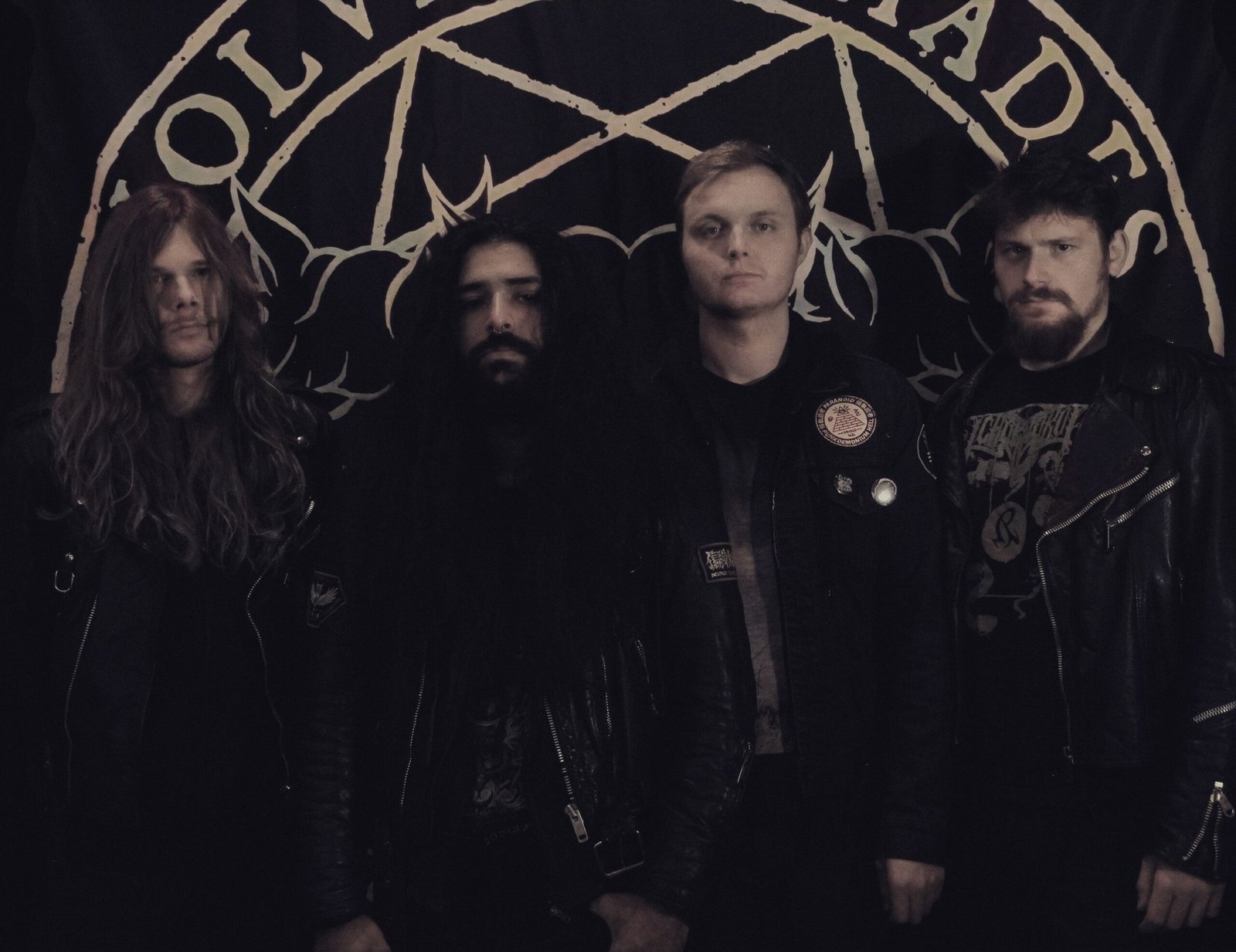Confession time: I go through an existential crisis every other year or so as a music fan. I am in one now. I gleefully absorb new music so much and so often that long loved genres of music start to feel stale. In this case, rock & roll. Guitar music is cool, fine. You crank the drums and have some swagger. Throw a solo in for good measure. I get it. I’ve heard it more times than I can count. It isn’t hitting the right spot, right now.
So, why bother lamenting that something I have loved is boring? This is a black metal review, man! Quit whining and get to talking about trve kvlt shit. Wipe off your blabbering tongue-keep and give us the blast beats! Black metal isn’t for *insert macho posturing here*.

I mention this, because Dödsrit is a band that has been in my heavy rotation in the past. They deserve an honest review for their newest album Nocturnal Will. The Swedish band (formerly a solo project) have been on an evolutionary course that has culminated into something quite different than where they started, but is every bit as worthy of praise as what made me a fan in the first place.
My first foray into Dödsrit was 2018’s Spirit Crusher, their second release. Over four long tracks they blended black metal with crust punk and a bit of post-metal into one of my favorite black metal albums that year. I bought the vinyl, told my friends, and jammed the album regularly. 2021 saw the release of Mortal Coil, an album that didn’t really do it for me. With a full band in tow, they ramped up their sound with solos, more traditional metal riffs, and much less crusty d-beat and punk influence. The songs were still long, but seemed to lack some cohesion.
Now, three years later, it is all coming together. Nocturnal Will opens with “Irjala” and some very sweet traditional metal riffage as a hellish shriek, tremolo guitars, and blast beats usher in the metal. The track approaches eleven minutes, over the course of which we hear a lot of the same. There is dynamic, high quality production that emphasizes the guitar leads, drums, and vocals. Dödsrit have become squarely a melodic black metal band.
This melodicism is heavily rooted in a very trad-metal sound, think more Sacramentum than Uada. About three minutes into “Irjala” the triumphant opening riff returns over some straightforward rock drumming. Perhaps it is that it is sandwiched between heavier black metal parts, but I find myself nodding my head in approval. The somber bit in the middle of the song gives us a moment to center ourselves as it builds into a pretty bridge. Icy guitars return with full blackened energy, and we are sent off on more riffing.
“Nocturnal Fire” comes next, and the thrill of its opening riff hits me. They are using twin lead guitars! Thin Lizzy be praised! Not only that, but there seem to be two vocalists delivering these menacing missives. Drums gallop. The verse riff is punk-ish. I am beginning to realize that the rock & roll parts between the black metal are satisfying some lost yearning. Then the track slows to give space to a mournful guitar solo, like a power ballad outro in the spotlight as rain pours down and a teary eyed maiden looks into the night from her castle tower.
I have rarely thought of black metal as a mullet-harboring genre. Kvlt dudes prefer to embrace the outsider status, and mullets are in. Yet, I can’t help but dig this sound. Don’t get me wrong, Dödsrit are creating some excellent black metal, here. The classic metal guitar parts are like a rich buttercream over the substantial, blackened cake.
“Ember and Ash” is a 44 second acoustic intro to an instrumental track, “Utmed Gylbergens Stig” which really doesn’t need to stand on its own as a track, since the outro is also acoustic. Maybe it was a vinyl space issue? Whatever the case, it seems out of place. “Utmed Gylbergens Stig” is solid, more guitar features over a steady rhythm. It fits with the mood and structure of Nocturnal Will well.
“Death Comes Reaping” also tracks close to eleven minutes. The lead riff is not far off from an Iron Maiden intro, but the aggressiveness of the song takes hold, propelling us into ferocious battle. Dödsrit sound the most abrasive on this track even although it is brief before more soloing, acoustics, and instrumental focused work takes over. Album closer “Celestial Will” maintains that intensity in a tighter package. The emotion of the vocals and the guitar melody are the driving forces, here.
The cover image of a lone knight pensively kneeling over his sword stuck in the frozen ground amongst a gray sky, barren trees, and snowy landscape gives great insight on how Nocturnal Will sounds. There is an overarching lamentation, born out of the ravages battle and loss. The classicism of the guitar work, the anguished screams, the solemn acoustics envelop the listener in the knight’s world.
With all of its traditionalism, Nocturnal Will reminded me that not all is lost with rock & roll. That, although I miss the crust punk influence, Dödsrit are moving on a well-trod pathway to the preservation of classic heavy metal tropes. One could consider these moves and themes tired, corny, and trite, but when the execution is on point, it is hard to argue that Dödsrit shouldn’t be torchbearers of the old guard.






